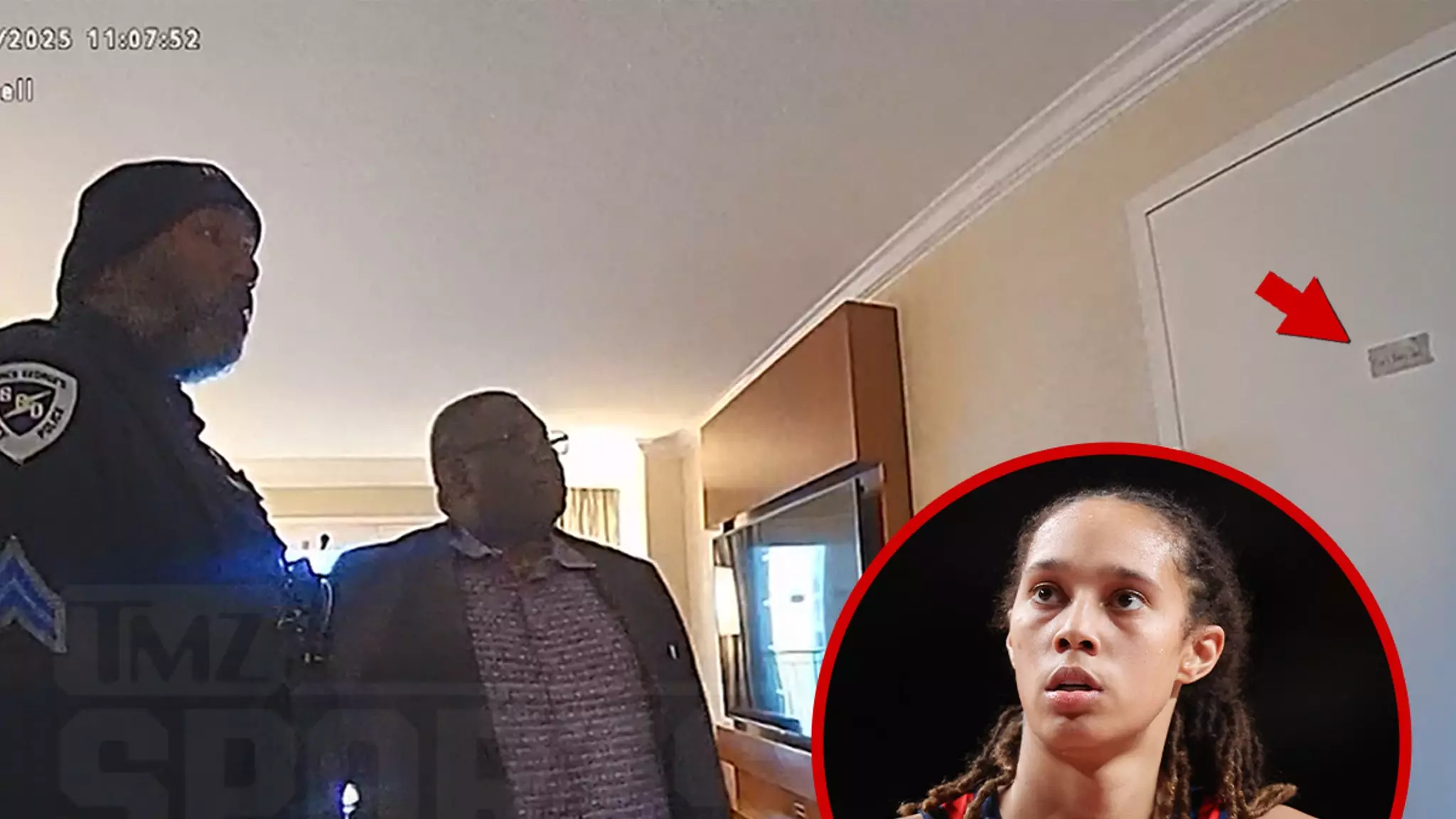In an intriguing twist of events, WNBA superstar Brittney Griner recently sparked a police investigation over a curious note that left her feeling threatened. This incident occurred on February 17 at the Gaylord National Resort and Convention Center in Maryland, where Griner alerted officials about the handwritten message she encountered in her hotel room. Her concerns prompted a swift response from local law enforcement, highlighting how seriously they took her apprehensions despite the absurdity of the note itself.
The body camera footage from Prince George’s County Police paints a vivid picture of the urgency conveyed by Griner’s call. Two officers promptly appeared at the hotel, their demeanor reflecting the seriousness of Griner’s misgivings. A hotel staff member assisted them, explaining how the message, labeled “Gay Baby Jail,” was affixed to the door of Griner’s room. As they ascended in the elevator, more details emerged about the note, revealing a blend of confusion and amusement surrounding its context. Upon entering the room, the officers encountered not only the peculiar note but also duct tape bearing the word “Private,” further deepening the atmosphere of oddity surrounding the scene.
Culture Clash or Misunderstanding?
As the investigation unfolded, one officer insightfully noted the note’s cultural meaning, connecting it to gaming vernacular. The term “Gay Baby Jail” is often employed within gaming circles to illustrate a frustrating situation—where a character progresses in an agonizingly non-advancing manner. This cultural reference might navigate the thin line between humor and misunderstanding, and it begs the question: how well do such interpretations translate across different contexts? Griner’s immediate reaction indicates that the merging of urban culture and gaming lexicon can produce bewildering results.
The incident was further complicated by the fact that the note likely originated from previous occupants who were attending Katsucon, a convention celebrating Japanese pop culture. It raises significant points about boundaries—personal safety, cultural interpretation, and the implications of humor versus offense. On a broader scale, is it fair for someone to feel threatened by a seemingly nonsensical note, or does the cultural context provide a buffer that diminishes genuine concern?
The Aftermath: Missing Engagement and Mixed Reactions
Despite the officers’ determination that the message was more likely a prank than a true threat, Griner chose to vacate the city without participating in her scheduled speaking engagement at the Women Grow Leadership Summit. It appears that circumstances surrounding the note were distressing enough to override her professional obligations, a decision that some might question. Was this an overreaction or a wise move to prioritize her peace of mind?
The backlash or approval following such an incident often reflects broader societal sentiments about safety, mental health, and respect for personal boundaries. In an age where public figures navigate often unpredictable reactions from fans and the media, the line between lighthearted teasing and serious threats can blur easily. Griner’s experience serves as a profound reminder of how personal experiences, particularly those filtered through the lens of public perception, can shape one’s actions in compelling and sometimes bewildering ways.
Ultimately, this bizarre incident highlights not just the individual concerns of a superstar athlete but also broader societal conversations about safety, cultural understanding, and the sometimes absurd intersections of humor and apprehension in our modern world.

